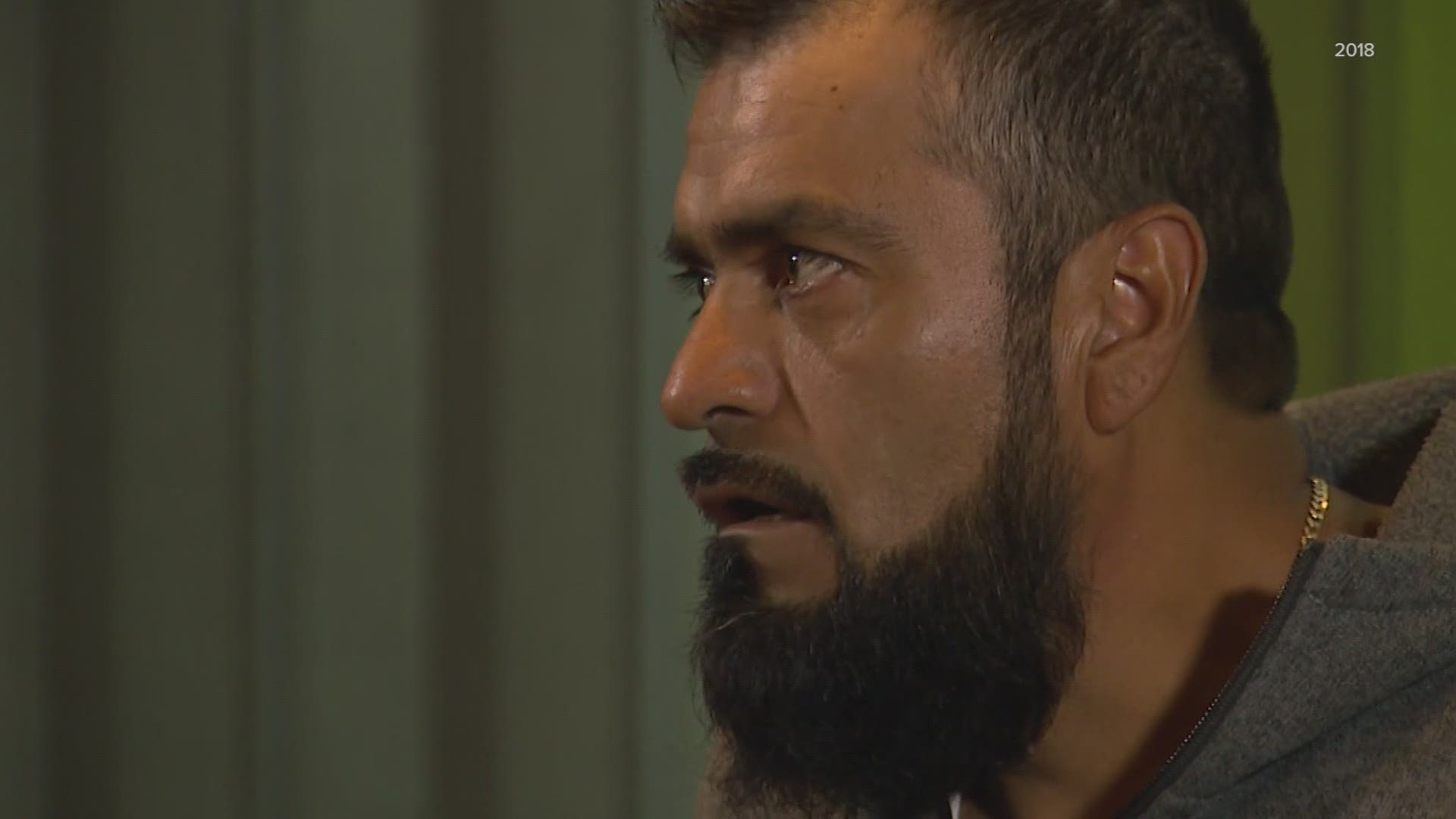TACOMA, Wash. — After years of fighting to stay in the U.S., Jose Robles walked out of the Northwest Detention Center in Tacoma Wednesday, though his immigration battle continues.
Robles, of Lakewood, has lived in the United States for decades with his wife and three children. Back in 2018, he received a deportation order to return to Mexico. He defied that, taking sanctuary inside Gethsemane Lutheran Church in downtown Seattle, living there for more than a year.
He walked out of the detention center to a small gathering of friends and family, who cheered as the gate opened. In an emotional reunion, he hugged his young daughters.
"It gave me so much strength and hope that so many people were behind me in Seattle," Robles said through an interpreter in a video posted by Gethsemane Lutheran.
“This is a huge sigh of relief for the whole family, the extended family,” said Sandy Restrepo, immigration attorney and co-founder at Colectiva Legal de Pueblo. “Pretty much Jose’s whole life has been on hold, he hasn’t been able to work in almost three years.
Before he began living in the church in 2018, Robles ran a painting business. Immigration and Customs Enforcement's standing policy on “sensitive locations” prohibited them from arresting him in a house of worship. But after a year, Robles and supporters marched to the ICE offices in Tukwila in a push for motion on his U-visa application, which is for victims of violent crimes that cooperate with police investigations.
Robles was assaulted during a robbery, but Lakewood Police would not sign the visa application. The Pierce County Prosecutor's Office eventually signed off on the document, though it has not been approved.
He is also appealing his removal in the court system.
Restrepo said despite past applications for release, Robles’ case received new attention thanks to President Joe Biden’s executive orders on immigration, which instructed ICE to reexamine policies and led the agency to release new interim guidance that it will focus "civil immigration enforcement and removal resources on threats to national security, border security and public safety."
Restrepo said the quick release came as a surprise.
“Definitely,” she said. “We were worried and had our plan B, our plan C, what we were going to do in case he was denied.”
Robles previously said his immigration fight began after some traffic violations. He’s had several run-ins with the law in the past decade, Restrepo said, including two misdemeanor assault arrests in 2010, and another domestic situation of misdemeanor assault in 2013, though all those charges were dismissed.
He also pleaded guilty to reckless driving in 2015, she said.
It’s important to acknowledge that history, Restrepo said, because of discussions on pending immigration legislation with exceptions for criminal records.
“Jose, he does have a record,” Restrepo said. “He’s been arrested previously, but those charges were dismissed or convictions lower, so for him and for so many people, they have paid their dues through the criminal justice system, they shouldn’t be punished a second time in the immigration system, and should have a chance to build their lives here.”
Anecdotally, Restrepo said under the new ICE guidelines, she's noticing clients receiving more favorable outcomes and releases.
An ICE spokesperson said the Northwest ICE Processing Center has reduced its current daily population to 205, chalking that up to several reasons, including COVID-19 protocols. The peak capacity is around 1575.
Now, Robles and his family will continue to wait for a decision in his case, an “uphill battle,” according to Restrepo. Robles was ordered to wear an ankle monitor following his release, though he is able and excited to return to work, and for the first time in nearly 1,000 days, sleep in his own bed.
“I think he’s been very appreciative of the support he’s received from his community and folks that have seen his story,” Restrepo said. “He just appreciates everyone that’s supporting him.”

